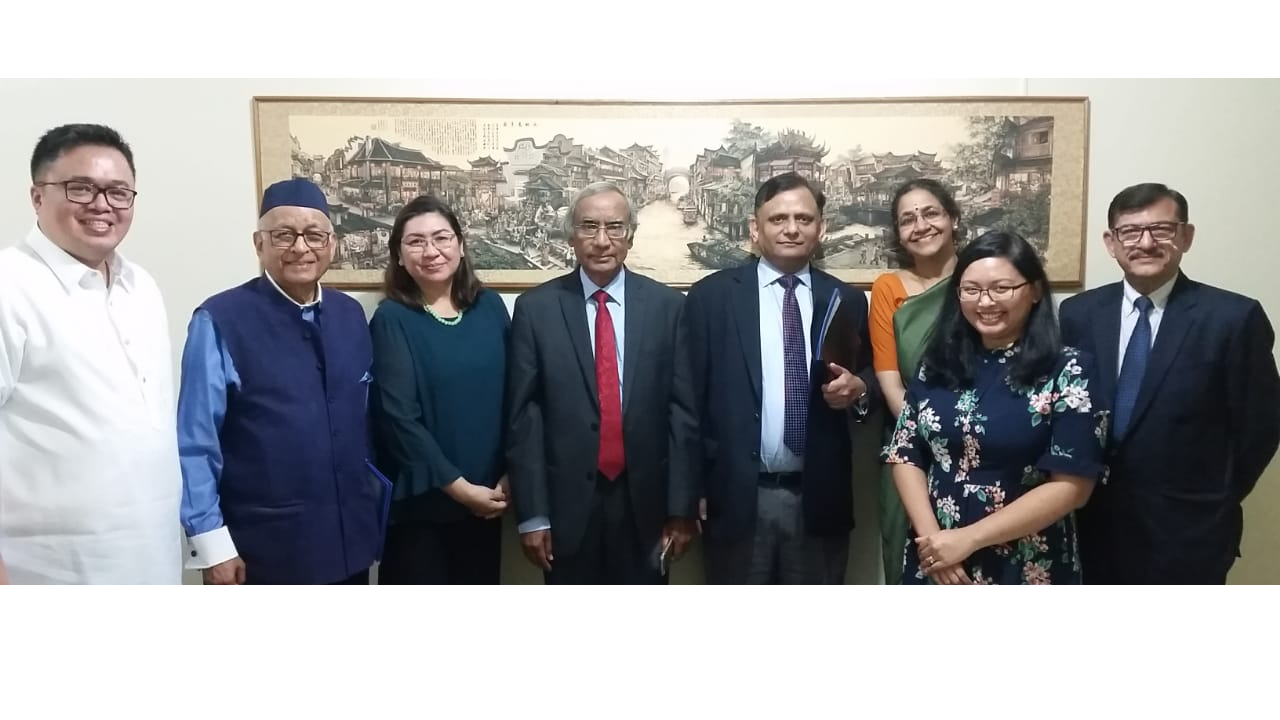
On March 11, delegates from Kalinga International Foundation, led by their Chairman, Ambassador Lalit Mansingh, met with Pathways to discuss India's bilateral ties with Southeast Asian countries and the changing geopolitical landscape in the Indo-Pacific. The discussion mostly focused on the possibilities and opportunities of enhanced interactions and partnerships between India and the Philippines, security issues in the South China Sea and the Indian Ocean, and better cooperation and interaction between Indian and Southeast Asian think tanks. The delegates were very eager to listen to Philippine perspectives on the region's security issues, and offered insights based on similar issues from the Indian subcontinent region. They also shared their perspectives on India's increased engagement with Southeast Asia and the United States' Indo-Pacific Strategy. Another topic of discussion was the revival of the Quadrilateral Security Dialogue, or the Quad 2.0, an informal strategic dialogue between the United States, Japan, Australia, and India. Widely viewed as a response to the increasing economic and military power of China in the region, the Quad was revived in 2017 after China's recent actions in the South China Sea. Despite being revived in the sidelines of the 2017 ASEAN Summits in Manila, ASEAN has not articulated a unified position on the revival of the Quad and its role in Southeast Asia, nor has the Philippines released its position on the matter.
Formed by Indian ambassadors, high officials, and leading scholars, Kalinga International Foundation is an Indian think tank with a focus on international and national security, Indian foreign policy, and regional cooperation. With the launch of Indian Prime Minister Narendra Modi's Act East Policy, Kalinga has focused its activities in exploring India's contribution to the region, its partnerships with Western Pacific countries, and India's role in the great power competition happening in the region and the emerging security environment.
